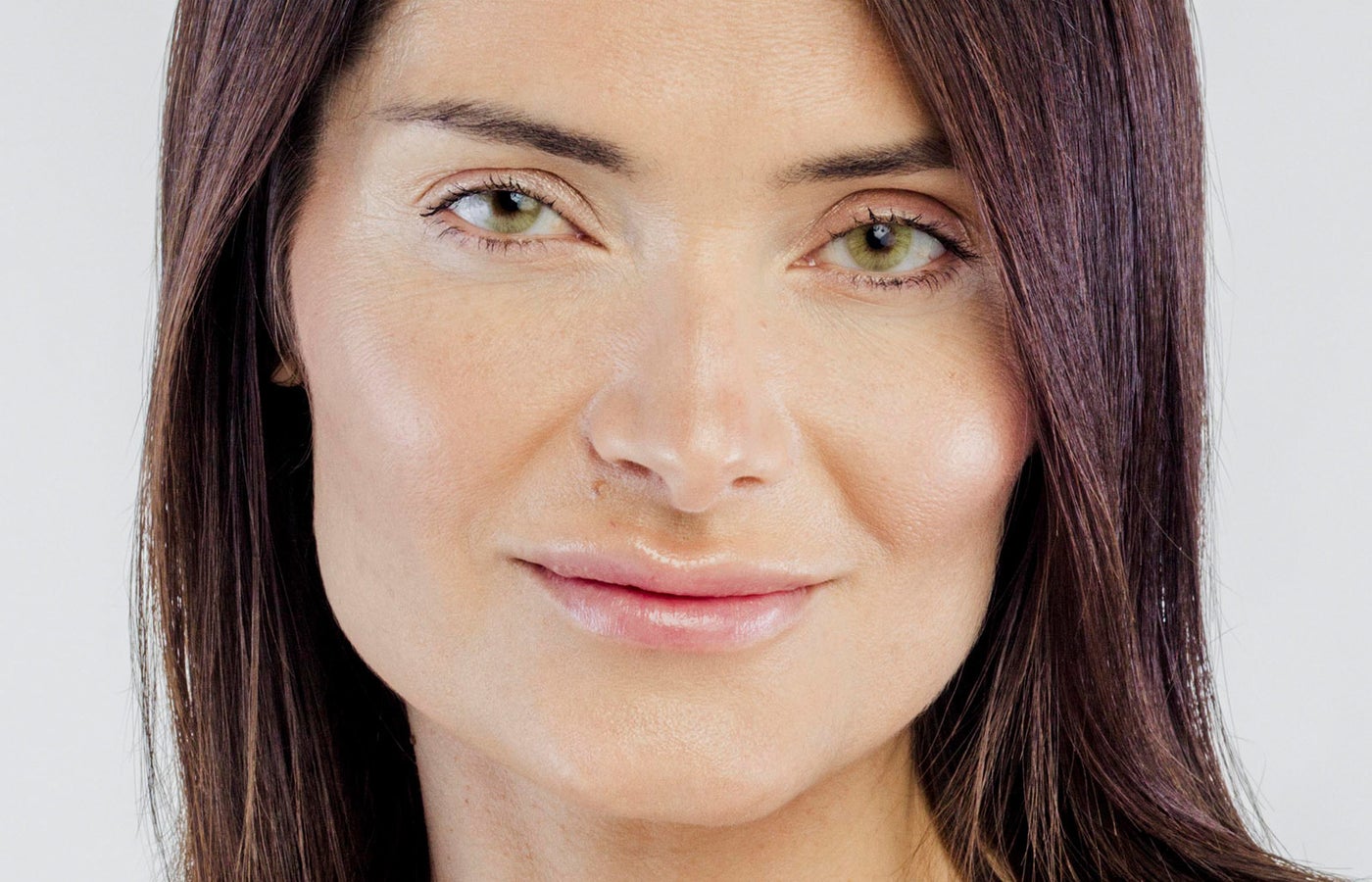Laser Genesis: What You Need to Know
Pros & cons
How much it costs
Who's a good candidate
How well it works
How to prep for treatment
What to expect
Laser Genesis vs. IPL
How long healing takes
How soon you see results
How long results last
Risks to consider
Fast facts
Laser Genesis stimulates new collagen production, to repair signs of aging and sun damage anywhere on the body. This nonablative laser uses micropulse technology at a wavelength of 1064nm, firing short bursts of energy so quickly that it doesn’t damage the skin's surface.
In the hands of an experienced provider, it can safely treat a range of skin concerns, including:
- fine lines and wrinkles
- uneven texture
- dullness
- redness, including rosacea or melasma
- large pores
- active acne and acne scars
Laser Genesis is often combined with other procedures, for optimal results. It can be performed on the same day as facials, chemical peels, radiofrequency (RF) skin-tightening treatments, RF microneedling, or dermal filler treatments.
One of the major benefits of this laser treatment is that it’s much less likely to trigger post-inflammatory hyperpigmentation in patients with olive or brown skin, unlike many other lasers.
Pros
- The treatment itself comes with minimal pain.
- There should be no downtime afterward, aside from some mild redness for a few hours.
- Because it’s a vascular laser, it can help treat rosacea symptoms—like irritation, swelling, pain, and sensitivity—by targeting the broken capillaries, diffuse redness, and flushing.
- It has a solid Worth It Rating from RealSelf members. Many who’ve tried it say it’s been a life-changing treatment for their rosacea, melasma, acne scars, or excess pigmentation.
- It’s considered very low-risk. “Laser Genesis is one of the safest procedures out there,” says Thousand Oaks, California, plastic surgeon Dr. Kouros Azar.
- It’s suitable for any skin tone. However, West Hollywood, California dermatologist Dr. Jason Emer cautions that people with brown or deep skin tones “need more gradual increases in energy to ensure there is no risk of increased heat, which can lead to hyperpigmentation.” Provider expertise is key to good results.
Cons
- You’ll need a series of treatments for best results, which can be pricey. Dr. Emer suggests an initial series of four to six weekly sessions, plus monthly maintenance treatments.
- It doesn’t offer dramatic results for deep wrinkles and severe sun damage. A resurfacing laser, like the Fraxel Dual (or Sciton Halo, for less downtime), is a better bet for those issues. If downtime isn’t an issue, consider the ablative CO2 laser or Er:YAG resurfacing.
- The effects are gradual. You may not see much of a difference until several weeks after your first treatment.
- Some RealSelf reviewers who say it was “Not Worth It” report side effects like burns, changes in skin texture, and fat loss. Make sure your provider has a solid track record of positive patient reviews before you book.
I started doing Laser Genesis treatments about 10 years ago. I really liked the results: smoother skin, improved texture, smaller pores, and an overall skin tightening effect.”
seankeith
RealSelf member- Average Cost:
- $575
- Range:
- $250 - $3,000
Your cost will depend on the experience level of your provider, their practice location, how many areas you’re treating, and the total number of treatment sessions you need.
This elective cosmetic treatment is not covered by insurance.
The Laser Genesis photos in our gallery have been shared by the provider who performed the procedure, with the patient's consent.
Laser Genesis is gentle enough for all skin types and tones. If you’re pregnant or nursing, avoid all laser treatments.
Additionally, if you have any irritation in the treatment area, such as a wound, cut, or rash, skip the lasers until you’re healed.
RealSelf Tip: Some lasers can cause problems if you’ve used isotretinoin (Accutane) in the past 12 months, but Laser Genesis is different, says Dr. Emer. “In our practice we actually have a protocol while people are on Accutane, where we have them do bimonthly Laser Genesis with facials to help control redness and sensitivity. This combination decreases acne more quickly and improves redness.”
An independent study from 2011 reported that 98% of test subjects were satisfied with their Laser Genesis results. After 30 days, these same volunteers had biopsies that determined elastin fibers had increased in the dermis, which improved the look of dilated pores, acne scarring, skin texture, and fine lines.
Individual results will depend on the number of treatments you receive, the intensity of your treatments, and the skill of your provider.
You might look at pictures of yourself a year after starting Laser Genesis treatments and think, ‘Wow, I look better than I did last year at this time.”
Dr. Jason Emer
board-certified dermatologist specializing in cosmetic dermatologyMost providers recommend these preparation steps before this laser treatment.
- Two weeks before your treatment, stop tanning or avoid sun exposure, to lower your risk of post-inflammatory hyperpigmentation.
- One week ahead of time, stop using alpha and beta hydroxy acid or retinol skin care products.
- If you have hair growth in the treatment area (even “peach fuzz”), shave or dermaplane it 24 hours before your appointment. Waxing and/or using a depilatory is not recommended.
- Because a laser procedure can trigger cold sores or a herpes outbreak, talk to your doctor about antiviral medication that you can take before your session.
- Arrive at your appointment with clean, dry skin that's makeup-free.
The procedure starts with a thorough skin cleansing in order to remove any residual makeup, oil, and dirt. Dr. Emer’s office performs a facial with dermaplaning beforehand, to clear pores, exfoliate dead surface cells, and reduce oil.
Topical anesthetics like numbing cream are usually unnecessary and ill-advised. “It affects the blood vessels, so you may not get as much of a redness-reducing benefit from Laser Genesis if you apply it beforehand,” says Dr. Emer.
You’ll be given protective eyewear before the treatment starts.
As the laser’s hand piece glides over the skin, you’ll feel subtle warmth and tingling, “like someone is touching you with their fingernails or pouring warm water on your face,” says Dr. Emer.
After the treatment, your technician may apply a moisturizer or hydrating serum (ideally with hyaluronic acid), followed by sunscreen.
RealSelf Tip: This procedure is often combined with Fractora RF or other radiofrequency microneedling treatments that penetrate the skin’s surface, delivering energy into the underlying tissue to boost collagen production and tighten skin.
Intense pulsed light (IPL), commonly called a photofacial, is a light-based treatment that uses high intensive visible light to tackle skin conditions like brown spots and facial redness.
Most people require a series of IPL treatments, spaced three to four weeks apart, and you can expect a few days’ downtime.
Because the light therapy targets pigment, it’s not ideal for people with olive or brown skin, which has an increased risk of burning, scarring, and discoloration.
Laser Genesis, on the other hand, is a viable option for all skin tones.
Which treatment is best for you depends on the severity of your skin issues and your aesthetic goals. An experienced dermatologist who offers a range of treatment options can recommend the best one for you.
Ideally, you won’t need any downtime or experience any of the burning or peeling that’s associated with more aggressive resurfacing lasers. If you wear makeup, you can apply it immediately following your treatment.
Expect some mild inflammation and swelling, but there’s no need to take time off work, and you can resume normal activities the next day. “We will often recommend LED light therapy that night, with red light to speed up the redness reduction and healing time,” says Dr. Emer.
You can also speed healing in a few other ways.
- Skip any potentially irritating active skin-care products that contain acids, retinoids, or benzoyl peroxide for at least 24 hours.
- Use a moisturizer generously, if your skin feels particularly tight or dry.
- Avoid sun exposure right after the procedure as well as steam rooms, saunas, and heavy exercise.
If your skin is still red or feels painful by the third day, contact your doctor.
You should start to notice improvements in your skin after 4 to 6 treatment sessions (spaced about a week apart).
The effects are cumulative. “It’s like a workout for the skin—something you have to do consistently over time in order to see substantial differences,” says Dr. Emer. “It slows down the aging process and reverses signs of aging.”
Results from an initial series of treatments can last from 6 to 12 months.
Some people have Laser Genesis treatments as frequently as once a month to maintain their results, but this depends on your skin and the issues you’re tackling.
Fading of acne scars and age spots should be long-lasting, if treatment is combined with medical-grade skin care, sunscreen, and regular facials.
Staving off other pigmentation issues like rosacea may require monthly follow-up visits.
Your lifestyle plays an important part in your skin’s health and upkeep. You can extend results from the Laser Genesis treatment by limiting sun exposure, wearing high-SPF sunscreen year-round, quitting smoking, exercising regularly, and committing to a medical-grade skin-care regimen.
Occasionally, a hive-like rash may occur in the days following your treatment; it should clear in a day or two.
Long-term side effects are rare, but RealSelf members have also reported:
- burns and blistering
- peeling
- unevenly textured skin
All of these potential side effects are more likely if you’re treated by a poorly trained technician, your treatment is too aggressive, or you have Fitzpatrick skin type
The biggest risk is for men who have facial or body hair covering treatment areas, says Dr. Emer. This laser targets hair, so treatments in hair-covered spots can be painful or lead to patchy, permanent hair loss.
Some reviewers on RealSelf have also reported fat loss, though doctors on RealSelf say that fat loss isn’t a potential complication of laser resurfacing.
If your goal is a brighter, younger-looking, more even complexion without much downtime, there are several other good options.
- Aerolase Lightpod Neo is another do-it-all laser that zaps redness, alleviates sun damage, and boosts collagen without any downtime. Similarly to Laser Genesis, it also treats acne and gets rid of unwanted hair. You’ll likely need a series of treatments.
- Clear + Brilliant is a gentle fractional laser that targets uneven skin texture and tone, with minimal recovery time. However, if redness and rosacea are your issue, it’s probably not the best laser for you. Experts on RealSelf say that Clear + Brilliant is better at addressing brown splotches than ruddy skin. Most doctors suggest monthly treatments for pigmentation, pores, fine wrinkles, and acne.
- Pico Genesis uses wavelengths to break up pigment from sunspots, acne scars, freckles, and melasma. It’s also considered safe on a variety of skin tones. You’ll likely have a few days of redness, and your brown spots will scab up and eventually flake off. Derms recommend a series of three to five sessions.
- Chemical peels are another tried-and-true approach to dealing with uneven tone and texture—and, in some cases, fine lines and wrinkles—by sloughing off the top layer of skin. If you’re looking for little to no downtime, your doctor will likely suggest a series of superficial, glycolic-acid peels that can fade dark spots and discoloration over time. If you have more severe sun damage and wrinkles, you might benefit from a more aggressive, medium-strength peel such as a TCA peel.
Updated August 16, 2023






